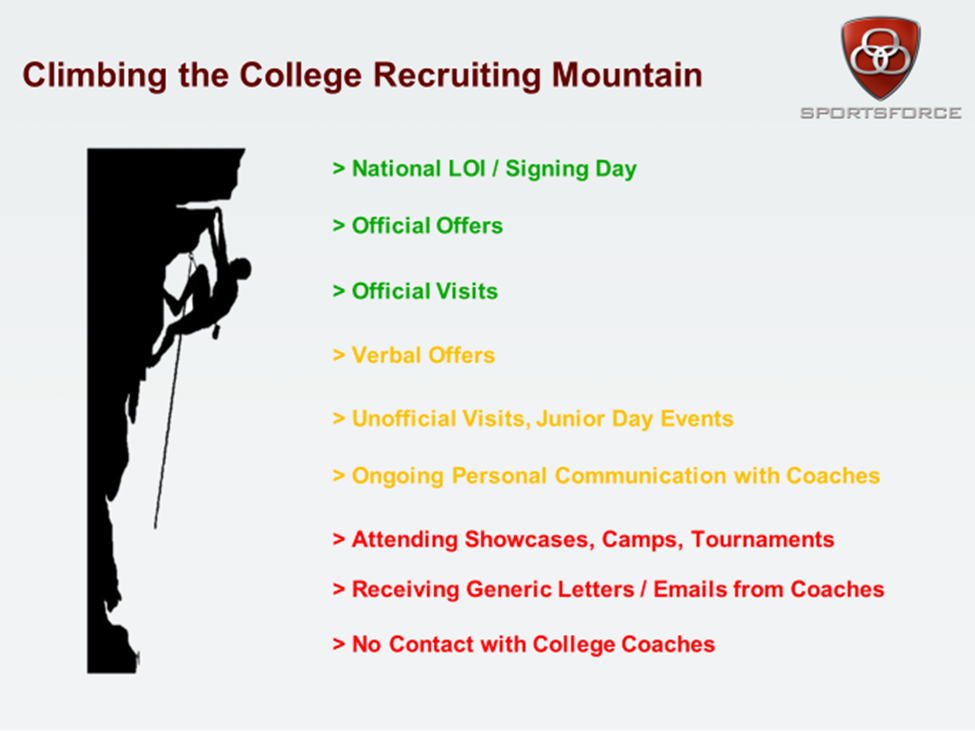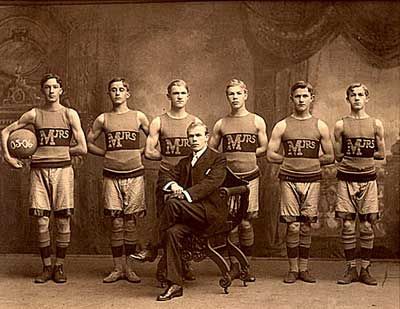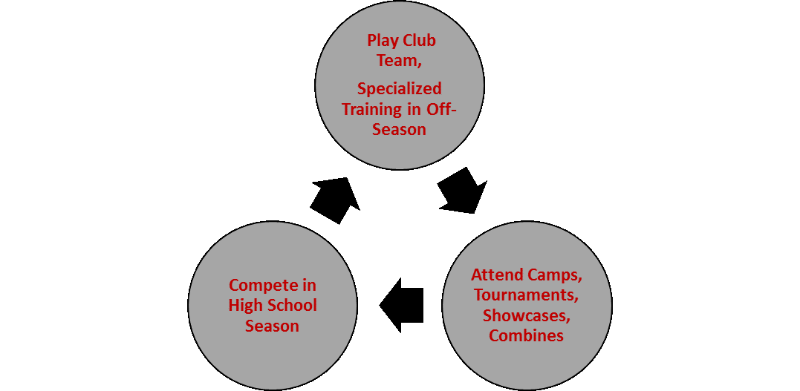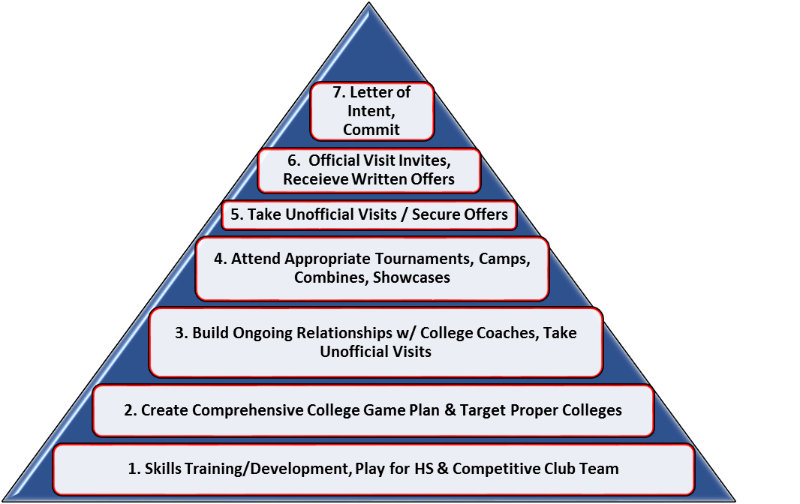Posts Tagged “scholarship”
Podcast Episode 4: Exposure vs. Being Exposed
Posted by SportsForce in Audio Clips, College, High School, Prep, Q & A, Recruiting, Tips & Advice, tags: athletic scholarship, college coach, college recruiting, college recruiting effort, collegiate athletes, high school coach, ncaa divisiom, Podcast, recruiting process, scholarship, sportsforcePodcast Episode 3: The role of high school and club team coaches
Posted by SportsForce in Audio Clips, College, High School, Prep, Q & A, Recruiting, Tips & Advice, tags: athletic scholarship, college coach, college recruiting, college recruiting effort, collegiate athletes, high school coach, ncaa divisiom, Podcast, recruiting process, scholarship, sportsforce


![]()
![]()
![]()
Are College Coaches Really Recruiting You?
Posted by SportsForce in College, Inspiring Stories, Recruiting, Tips & Advice, tags: athletic scholarship, college coach, college recruiting, college recruiting game plan, college recruiting mountain, college recruiting process, high school student, official offer, recruitment, scholarship, sportsforce, student athleteWhen a student-athlete becomes serious about playing their sport in college, it helps to understand when a college coach is truly recruiting them. Many families have difficulty interpreting the various types of correspondence from college coaches. They just can’t tell the difference when a coach is genuinely interested in developing a relationship versus one who is just marketing their school’s sports program.
Understanding this difference is not only vital to your success, it saves you valuable time, money and resources on chasing opportunities that will never be realized. When your efforts are focused on the coaches and schools that really have an interest in you, the results tend to reflect more offers, higher scholarship amounts and a shorter recruiting cycle.
At SportsForce, we like to help our families visualize this process. The diagram below shows a person climbing a mountain. This represents your son or daughter. They’re ascending the college recruiting mountain with possibly several hundred thousand other student-athletes also competing for a college roster spot for their particular sport. But on average, only about 5-6% of those few hundred thousand make it to the top of the mountain with an offer or scholarship.


The areas listed on the right are the basic steps and communication that takes place along the way. More specifically, the areas in red are what we call “Base Camp One” on the mountain. That’s where a lot of student-athletes stop in terms of their college recruiting. At this point, they have no contact with college coaches. Another key indicator of being at Base Camp One is they might attend or be invited to a big tournament, combine or camp. They might also receive generic emails, questionnaires or form mailings from a coach. But that’s about as far as it goes. The red color means they have not advanced their recruiting progress.
The key to knowing when you’re being “actively” recruited, is when your son or daughter have an ongoing personal dialog with a college coach. The area in yellow highlights some of these types of activities and communication. If they’re receiving personal texts, phone calls, emails or hand-written notes, this means they’re being actively recruited. If they are invited for an unofficial visit or Junior Day event, this also aligns with active recruitment. The yellow color means caution. Just because your student-athlete is actively communicating with college coaches does not automatically mean they will receive a written offer from them. College coaches are also pursuing other players, not just your son or daughter.
Once in the green area, student-athletes (if they have not already) may begin receiving verbal offers. Those may lead to further official visits, which may produce written offers and ultimately a signed National Letter of intent. The green color means go and your student-athlete is receiving offers and probably achieving their college recruiting goals.
Where is your son or daughter on the college recruiting mountain? Do they need assistance in building personal relationships with college coaches or deciphering their communication?
Contact us today for a personal college recruiting evaluation. Our highly trained team of college recruiting advisors have either played or coached their sport at the college level. Our entire team of professionals dedicates their passion, time and attention to properly evaluating, educating and successfully guiding qualified student-athletes and their families through the college planning and recruiting process.
For a personal college recruiting evaluation and honest estimate of your potential to compete at the next level, contact us at:
Phone: 1.888.9787084
Email: scouting@sportsforceonline.com
Climbing the College Recruiting Mountain
Posted by SportsForce in College, Inspiring Stories, Recruiting, Tips & Advice, tags: college coach, college recruiting, recruiting process, scholarship, sportsforce, student athlete

If your high school son or daughter is seriously interested in playing their sport in college, then they have already begun climbing the college recruiting mountain.
If your son or daughter are:
• not hearing back from college coaches,
• attending top showcase tournaments and camps, or
• only receiving questionnaires and generic coach email responses…
this means they are NOT being “actively” recruited by college coaches. It also means they are at the base of the recruiting mountain and may have a considerable journey ahead of them to reach the top and secure a roster spot or scholarship offer.
One of the keys to successfully climbing the college recruiting mountain and securing multiple offers is to begin developing meaningful and ongoing relationships with college coaches.
Listed below is an email sent last week from a NCAA DI college coach in Southern California to a SportsForce client that illustrates this point:
“We have heard great things about you. I wanted to let you know that we are very interested in building a relationship with you and your family.
I would love to get on the phone with you today or tomorrow. Please pass this message along to your parents/guardians, as I would love to speak with them as well.
Let me know a good time to call.
This is my cell number so please lock me into your contacts and feel free to call/text anytime.”
The SportsForce client that was the recipient of this email has scheduled a college visit and has begun building a strong relationship with this coach and staff. Although it may take some additional time to ensure there is a mutual fit between this coach and our student-athlete, they are clearly off to a great start on their journey to the top of the college recruiting mountain.
College Recruiting has changed…Your Approach may be Outdated!
Posted by SportsForce in College, Inspiring Stories, Recruiting, Tips & Advice, tags: best-fit schools, club team, college coach, College Coaches, college recruiting, college recruiting game plan, college recruiting model, High School, hope strategy, outdated 1990's approach, scholarship, student athletes, success pyramid









